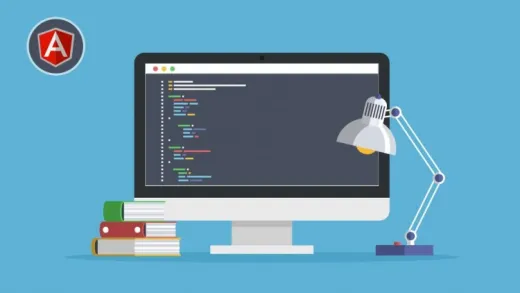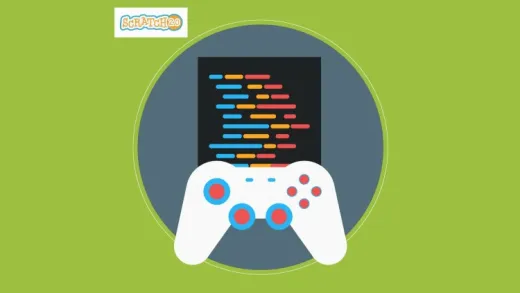About This Course
Learn to build expert NLP applications and machine learning projects using NLTK and Python library- scikit-learn
Natural Language Processing (NLP) is the most interesting subfield of data science. It offers powerful ways to interpret and act on spoken and written language. It’s used to help deal with customer support enquiries, analyse how customers feel about a product, and provide intuitive user interfaces. If you wish to build high performing day-to-day apps by leveraging NLP, then go for this Learning Path.
This comprehensive 2-in-1 course teaches you to write applications using one of the popular data science concept, NLP. You will begin with building 3 NLP applications which are a spam filter, a topic classifier, and a sentiment analyzer. You will then learn how to use open source libraries such as NLTK, scikit-learn, and spaCy to perform routine NLP tasks backed by machine learning and NLP processing models with ease. You will be taken on a journey starting from the very basics such as using a corpus and regular expressions to learning advanced NLP concepts while simultaneously solving common NLP problems faced in your day-to-day tasks. You will learn all of these through practical demonstrations, clear explanations, and interesting real-world examples. This learning path will give you a versatile range of NLP skills, which you will put to work in your own applications.
This training program includes 2 complete courses, carefully chosen to give you the most comprehensive training possible.
The first course, Hands-on NLP with NLTK and Scikit-learn, puts you right on the spot, starting off with building a spam classifier in our first video. You will then build three NLP applications: a spam filter, a topic classifier, and a sentiment analyzer. You will also be able to build actual solutions backed by machine learning and NLP processing models with ease.
The second course, Developing NLP Applications Using NLTK in Python, course is designed with advanced solutions that will take you from newbie to pro in performing natural language processing with NLTK. You will come across various concepts covering natural language understanding, natural language processing, and syntactic analysis. It consists of everything you need to efficiently use NLTK to implement text classification, identify parts of speech, tag words, and more. You will also learn how to analyze sentence structures and master syntactic and semantic analysis.
By the end of this Learning Path, you will be able to create new applications with Python and NLP. You will also be able to build actual solutions backed by machine learning and NLP processing models with ease.
Meet Your Expert(s):
We have the best work of the following esteemed author(s) to ensure that your learning journey is smooth:
Colibri Ltd is a technology consultancy company founded in 2015 by James Cross and Ingrid Funie. The company works to help its clients navigate the rapidly changing and complex world of emerging technologies, with deep expertise in areas such as big data, data science, machine learning, and cloud computing. Over the past few years, they have worked with some of the world's largest and most prestigious companies, including a tier 1 investment bank, a leading management consultancy group, and one of the World's most popular soft drinks companies, helping each of them to make better sense of its data, and process it in more intelligent ways. The company lives by its motto: Data -> Intelligence -> Action.
Rudy Lai is the founder of QuantCopy, a sales acceleration startup using AI to write sales emails to prospects. By taking in leads from your pipelines, QuantCopy researches them online and generates sales emails from that data. It also has a suite of email automation tools to schedule, send, and track email performance—key analytics that all feedback into how our AI generated content. Prior to founding QuantCopy, Rudy ran HighDimension.IO, a machine learning consultancy, where he experienced first-hand the frustrations of outbound sales and prospecting. As a founding partner, he helped startups and enterprises with High Dimension. IO's Machine-Learning-as-a-Service, allowing them to scale up data expertise in the blink of an eye. In the first part of his career, Rudy spent 5+ years in quantitative trading at leading investment banks such as Morgan Stanley. This valuable experience allowed him to witness the power of data, but also the pitfalls of automation using data science and machine learning. Quantitative trading was also a great platform from which to learn deeply about reinforcement learning and supervised learning topics in a commercial setting.
Krishna Bhavsar has spent around 10 years working on natural language processing, social media analytics, and text mining in various industry domains such as hospitality, banking, healthcare, and more. He has worked on many different NLP libraries such as Stanford CoreNLP, IBM's SystemText and BigInsights, GATE, and NLTK to solve industry problems related to textual analysis. He has also worked on analyzing social media responses for popular television shows and popular retail brands and products. He has also published a paper on sentiment analysis augmentation techniques in 2010 NAACL. he recently created an NLP pipeline/toolset and open sourced it for public use. Apart from academics and technology, Krishna has a passion for motorcycles and football. In his free time, he likes to travel and explore. He has gone on pan-India road trips on his motorcycle and backpacking trips across most of the countries in South East Asia and Europe.
Naresh Kumar has more than a decade of professional experience in designing, implementing, and running very-large-scale Internet applications in Fortune Top 500 companies. He is a full-stack architect with hands-on experience in domains such as ecommerce, web hosting, healthcare, big data and analytics, data streaming, advertising, and databases. He believes in open source and contributes to it actively. Naresh keeps himself up-to-date with emerging technologies, from Linux systems internals to frontend technologies. He studied in BITS-Pilani, Rajasthan with dual degree in computer science and economics.
Pratap Dangeti develops machine learning and deep learning solutions for structured, image, and text data at TCS, in its research and innovation lab in Bangalore. He has acquired a lot of experience in both analytics and data science. He received his master's degree from IIT Bombay in its industrial engineering and operations research program. Pratap is an artificial intelligence enthusiast. When not working, he likes to read about nextgen technologies and innovative methodologies. He is also the author of the book Statistics for Machine Learning by Packt.
Build end-to-end natural language processing solutions, ranging from getting data for your model to presenting its results
Learn core NLP concepts such as tokenization, stemming, and stop word removal
Classify emails as spam or not-spam using basic NLP techniques and simple machine learning models









Vineet K.
The course goes smooth , but has a lot of repeated content.
I would suggest the team to have different types of projects that show varied use cases of NLP.